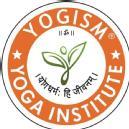
Search from over 6,50,000+ Tutors, Trainers and Training Institutes
What do you want to learn?
No Matching Category Found x
Please select a Categoryx
Where do you need it?
Please select a Locationx
Popular Courses in Bangalore

3rd and 4th Semester Engineering Subjects
By PrashanthElectronics and CommunicationBanashankari 3rd Stage, Bangalore
effective teaching Engg subjects Topics Covered VTU / engg syllabus Who should attend BE students Pre-requisites Nothing What you need to bring Nothing""""" Key Takeaways Confidence Read More

Diploma in Baking, Confectionery & Cake Art
By Multi Trainer ClassesCookingMission Road, Bangalore
Crafting your CAREER or HOBBY learning of Baking & Creativity. BCCA offers Learning Baking & Confectionery in a commercial format from scratch... Read More

Workshop on Basics of Photography
By Taha ZaidiLalbagh Road, Bangalore
How do I blur out the background? Is Manual mode better than Auto? Why do photographers shoot in RAW? Which memory card should I use? Why are my pictures... Read More

Drums
By Jason Zachariah Langford Road, Bangalore
Whether in cultures east or west, rhythm has and continues to play a primal (and vital) role in virtually any form of music evolved by humans. Drums have... Read More
How UrbanPro works

Post your requirement

Get customized responses

Compare & hire smartly
Find best Tutors, Trainers & Training Institutes for your requirement on India's Favourite Learning Destination.
Post your Requirement
Show previous answers 

Bhawana Sharma replied | 7 hrs ago
Tutor partnership usually means a collaboration between a tutor and an online platform (or company) that helps the tutor find students. The platform gives student leads, visibility, and tools, while the tutor teaches the classes.
Is it legit?
Show previous answers 

Mrugesh replied | 23 hrs ago
Yes, teacher come student's home for class

Ravi Singh replied | 10 hrs ago
Online is like sitting next to teacher. Please take a demo

Show previous answers 

Ishan Khatri replied | 3 days ago
One should begin Prāṇāyāma after mastering a steady and comfortable āsana, when the body is stable and the breath is calm.

Swaraj Patil replied | 1 day ago
Once someone to do asana in steady and stable manner (Shir Shukham Asana) then can start practicing pranayama. Normal breathing practice is fine, anyone can do it. But holding of breath needs to be done under guidance of experts / Guru. If hold breath in wrong way and it can cause sever side effects as well.
Thousands of experts Tutors, Trainers & other Professionals are available to answer your questions
Ask a ProHow it works for Tutors & Training Institutes
![]()
Create Free Profile
Upload Photos, Portfolio, Certificates, Add Description, Qualification, Achievements to Help students Discover You
![]()
Teach Students Online / Offline
Use world class tools for FREE to teach Students across India and globally. Get Training support and Marketing support to get steady stream of Students to teach.
![]()
Earn a steady income
Earn handsomely based on the number of Students you teach. Top Tutor Partners earn ₹ 40,000 to ₹ 1,50,000 per month.
Music in Bangalore
Exam Prep in Bangalore
Health and Fitness in Bangalore
IT Courses in Bangalore
Language in Bangalore
IT Courses
Tuitions
IT Courses
Tuitions
Languages
Exam Prep
Requirements by Customers
Post requirement and connect with the tutors in your locality

Find best tutors, trainers & institutes near you on UrbanPro
Post your learning requirement
Jyothsna replied | 8 hrs ago
Tutor partnership is a program where a tutoring platform connects tutors with students who need help in different subjects. Tutors create a profile and may receive student leads or tutoring opportunities through the platform. Some platforms may charge a small fee for this service, but it helps tutors find students online.